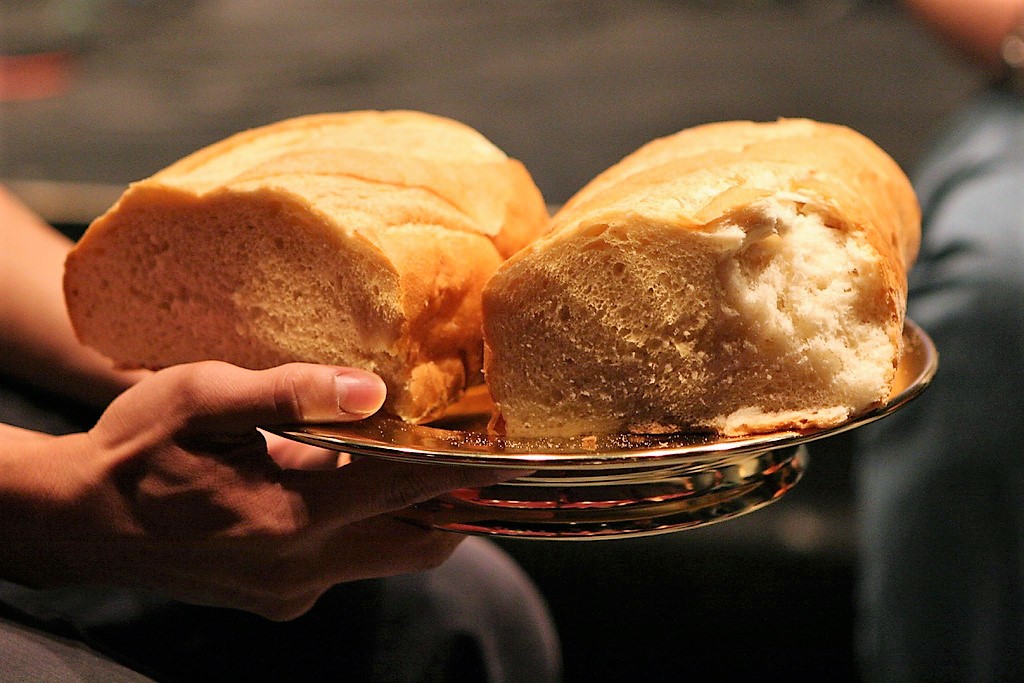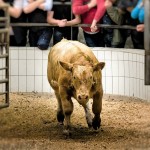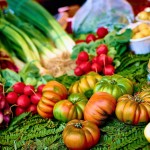Author and lecturer at the University of Edinburgh, Dr David Grumett, discusses the distinctively Christian approach to food, the example of Christ in challenging social norms and how Christians might example responsible food production as part of their Gospel witness to wider society.
 In our supermarkets and grocery stores we see laid out before us a range and quality of products unimaginable to past generations. Developing nations aspire to similar abundance, but there isn’t enough food and energy to go round if we are all to consume at these levels. We often rightly see the fruits of the earth, field and pasture as gifts from God that are to be received and enjoyed with thanks. But let’s remember that, in the Old Testament, these gifts are given to us with limits attached. In Exodus we’re told that, on the Sabbath, the plough mustn’t turn the earth and the sickle mustn’t reap the wheat. In Leviticus and Deuteronomy, not all types of meat may be eaten. Some of these rules might seem strange according to the logic of modern consumer society. But it isn’t that they make no sense. On the contrary, they form part of an ancient wisdom of sustainable living on the land that we should heed today.
In our supermarkets and grocery stores we see laid out before us a range and quality of products unimaginable to past generations. Developing nations aspire to similar abundance, but there isn’t enough food and energy to go round if we are all to consume at these levels. We often rightly see the fruits of the earth, field and pasture as gifts from God that are to be received and enjoyed with thanks. But let’s remember that, in the Old Testament, these gifts are given to us with limits attached. In Exodus we’re told that, on the Sabbath, the plough mustn’t turn the earth and the sickle mustn’t reap the wheat. In Leviticus and Deuteronomy, not all types of meat may be eaten. Some of these rules might seem strange according to the logic of modern consumer society. But it isn’t that they make no sense. On the contrary, they form part of an ancient wisdom of sustainable living on the land that we should heed today.
Our global food problems aren’t just about the technical issues of balancing supply and demand, nor of transporting food to where it is most needed. Rather, they are symptoms of a deeper breakdown of community. Our wish, despite rapidly diminishing petroleum reserves, to be continually on the move has led us to develop biofuel alternatives. As a result, automobiles are devouring the food supplies that would otherwise feed hungry humans. Meanwhile, we frequently create virtual lives mapped around our self-selected desires rather than enjoy the immense riches that, when we open our eyes and look around us, we so often find available in our immediate localities.
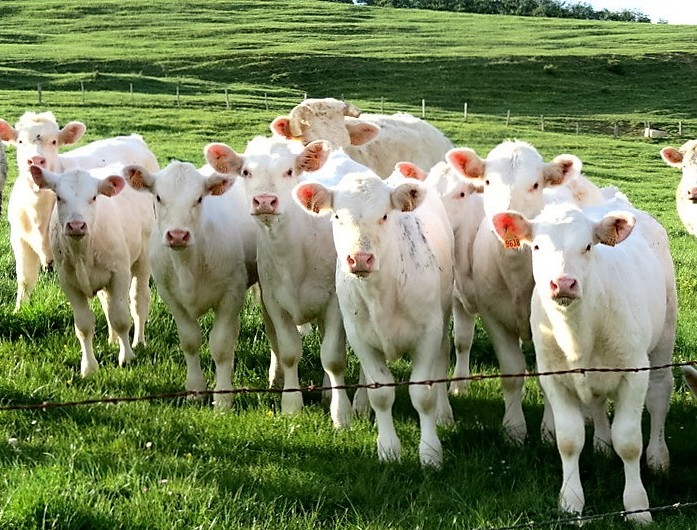 Meat is a large problem and future per capita consumption will surely have to fall. In the United States, the livestock population consumes seven times as much grain as the human population. Again we see a practice that belies the breakup of community. Many millions of livestock spend their short lives imprisoned in mechanized farming systems out of the sight of ordinary, compassionate humans. The contrast with the close friendships that have existed between animals and many saints, such as Francis of Assisi and the Desert Fathers, couldn’t be sharper. As with travel, large-scale meat-eating also points to a fracturing of human community and of our relationship with place. In settled societies such as our own, meat is frequently a status symbol. For a long time, to place meat on the dining table was to display the ownership or control of pastureland. Yet in societies where agrarian farming is highly developed, crops and vegetables provide more natural options. We no longer need to live as a nomadic people, with flocks and herds travelling with us to furnish us with a mobile food supply. Yet even in an age of factory farming, our growing reliance on meat points to a new, self-inflicted nomadism. Meat-based fast food meals, which provide high sustenance in minimum time, are too easily preferred to a meal lovingly prepared and joyously shared among family and friends.
Meat is a large problem and future per capita consumption will surely have to fall. In the United States, the livestock population consumes seven times as much grain as the human population. Again we see a practice that belies the breakup of community. Many millions of livestock spend their short lives imprisoned in mechanized farming systems out of the sight of ordinary, compassionate humans. The contrast with the close friendships that have existed between animals and many saints, such as Francis of Assisi and the Desert Fathers, couldn’t be sharper. As with travel, large-scale meat-eating also points to a fracturing of human community and of our relationship with place. In settled societies such as our own, meat is frequently a status symbol. For a long time, to place meat on the dining table was to display the ownership or control of pastureland. Yet in societies where agrarian farming is highly developed, crops and vegetables provide more natural options. We no longer need to live as a nomadic people, with flocks and herds travelling with us to furnish us with a mobile food supply. Yet even in an age of factory farming, our growing reliance on meat points to a new, self-inflicted nomadism. Meat-based fast food meals, which provide high sustenance in minimum time, are too easily preferred to a meal lovingly prepared and joyously shared among family and friends.
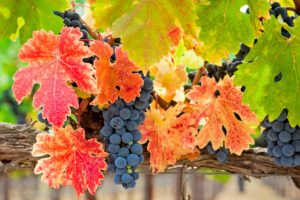 It’s no coincidence that the foods with which we celebrate the Eucharist are the products of a stable, interconnected community. In order to produce bread, a whole network of community co-operation is needed: settled crop farming, technologies that grind grain into flour, knowledge of how to make a dough that rises, and the ability to apply heat to the risen dough in an often communal oven. This is even truer of wine: vines take years to establish and need pruning, spraying, training, thinning, harvesting and propagating through the year. Moreover, tanks, presses and barrels are required for fermentation and ageing. The cup of the new covenant is the product of a long labor.
It’s no coincidence that the foods with which we celebrate the Eucharist are the products of a stable, interconnected community. In order to produce bread, a whole network of community co-operation is needed: settled crop farming, technologies that grind grain into flour, knowledge of how to make a dough that rises, and the ability to apply heat to the risen dough in an often communal oven. This is even truer of wine: vines take years to establish and need pruning, spraying, training, thinning, harvesting and propagating through the year. Moreover, tanks, presses and barrels are required for fermentation and ageing. The cup of the new covenant is the product of a long labor.
Christianity has great traditions of food spirituality. On Fridays and during the whole season of Lent, abstinence from meat has been practiced in some Churches. By saying grace before meals, many have offered thanks for the sustenance they receive and for all that comes with it. By eating special foods on special days, feasts and festivals have been marked in the home. In monastic rules, meat has usually been prohibited to all but the elderly, the sick, and children, with a strong tradition of fish cuisine evolving in its place. Indeed, it was through small fishing businesses that over half the apostles earned their living. Yet today there is often more interest in food issues in secular society than within the mainstream churches. Food co-operatives, vegetarianism, veganism, raw foodism, and other such movements are increasingly popular, yet churches frequently seem disinterested in them. Admittedly, such movements can become substitute religions motivated by a kind of pagan reverence for the earth. More deeply, however, they can help us Christians reconnect with the hopes, concerns and disciplines that form part of our own tradition but which we are in danger of forgetting.
We Christians have our own distinctive story to tell about food in our own language and through our own customs and practices. In so doing, let ‘s be encouraged by the example of Christ, who challenged the prevailing social, ethical, and religious consensus by eating food that was deemed unsuitable in company that was deemed unbefitting. If we were to proclaim our own story of responsible food production and consumption more clearly, we might reconnect with people with a sense of global responsibility and a love of community, but who feel the Gospel message has little relevance to their daily lives. We might also help bring the world a little closer to the heavenly banquet that, in due time, we are all promised.
Dr David Grumett lectures in the School of Divinity at the University of Edinburgh, UK. He is co-author of Theology on the Menu: Asceticism, Meat and Christian Diet (Routledge, 2010) and has produced many articles and book chapters on food and animals in Christian context. His website is www.davidgrumett.com


